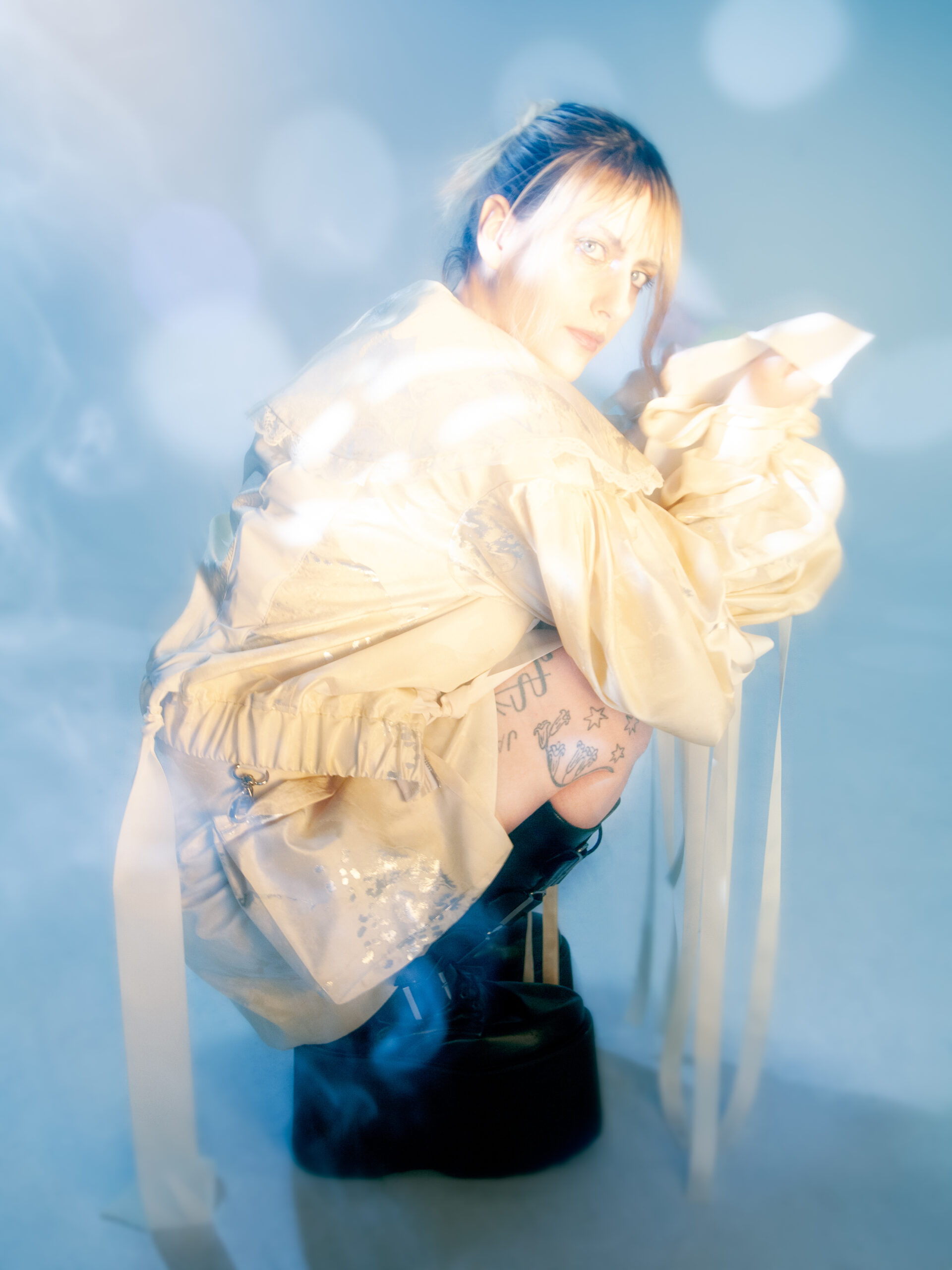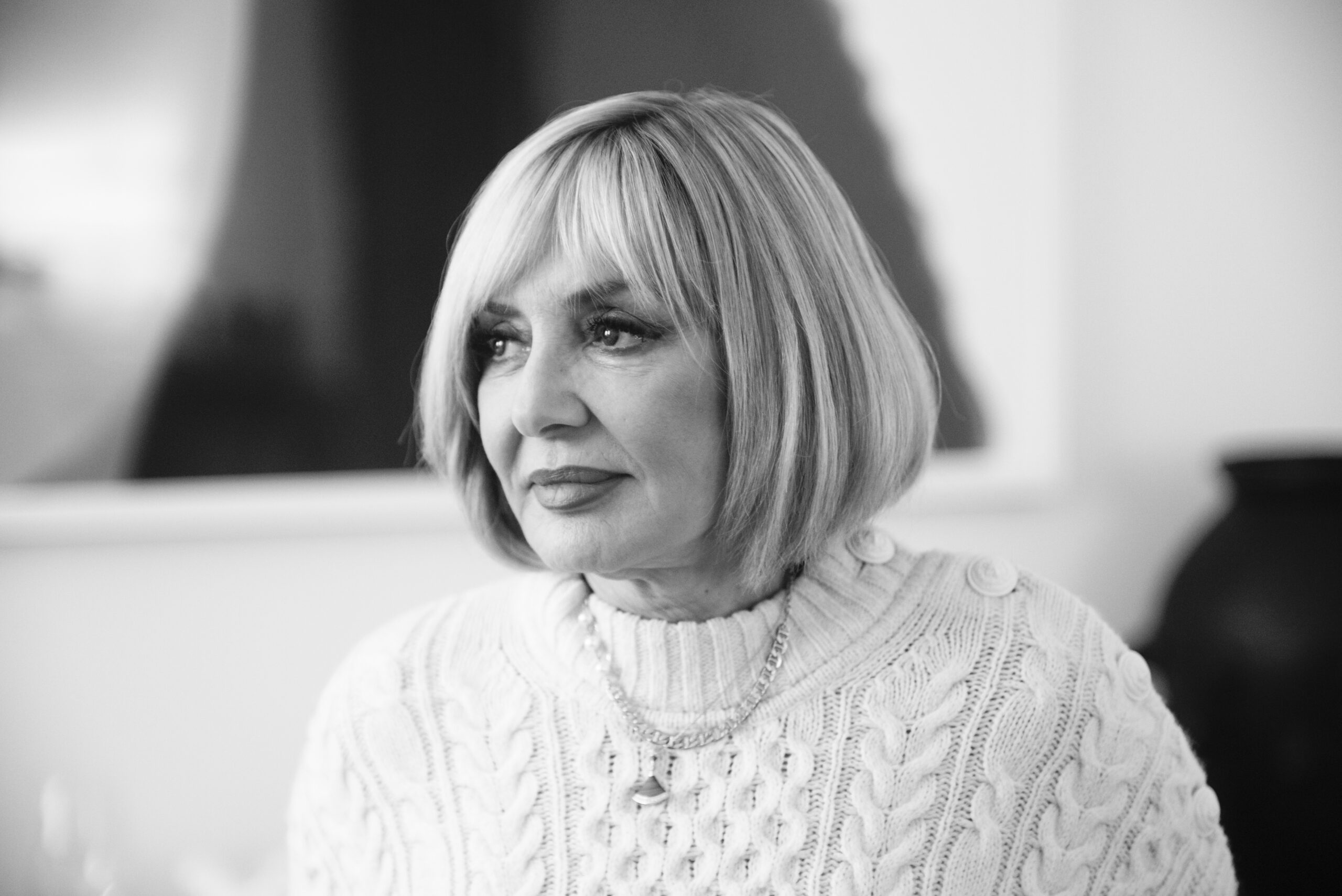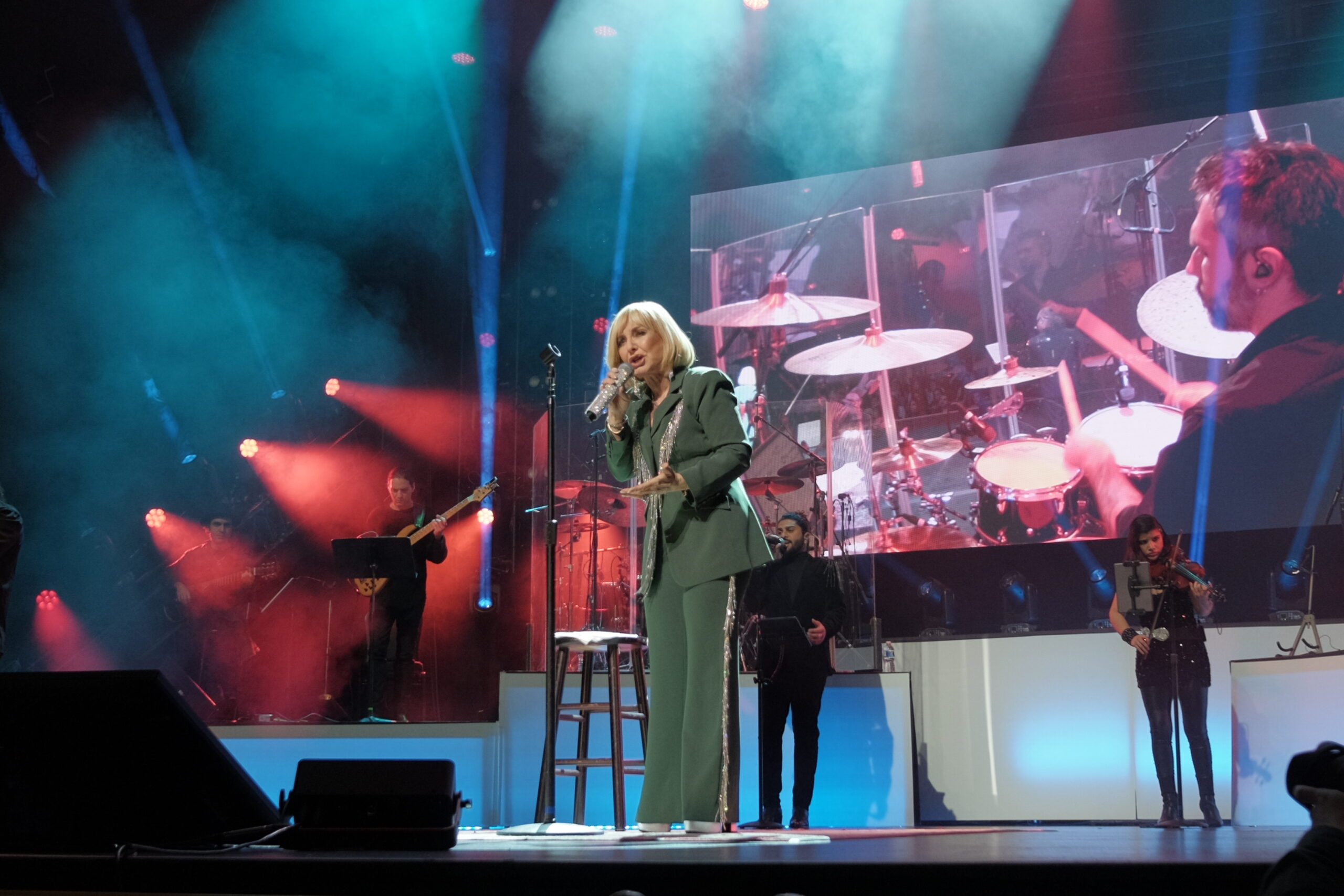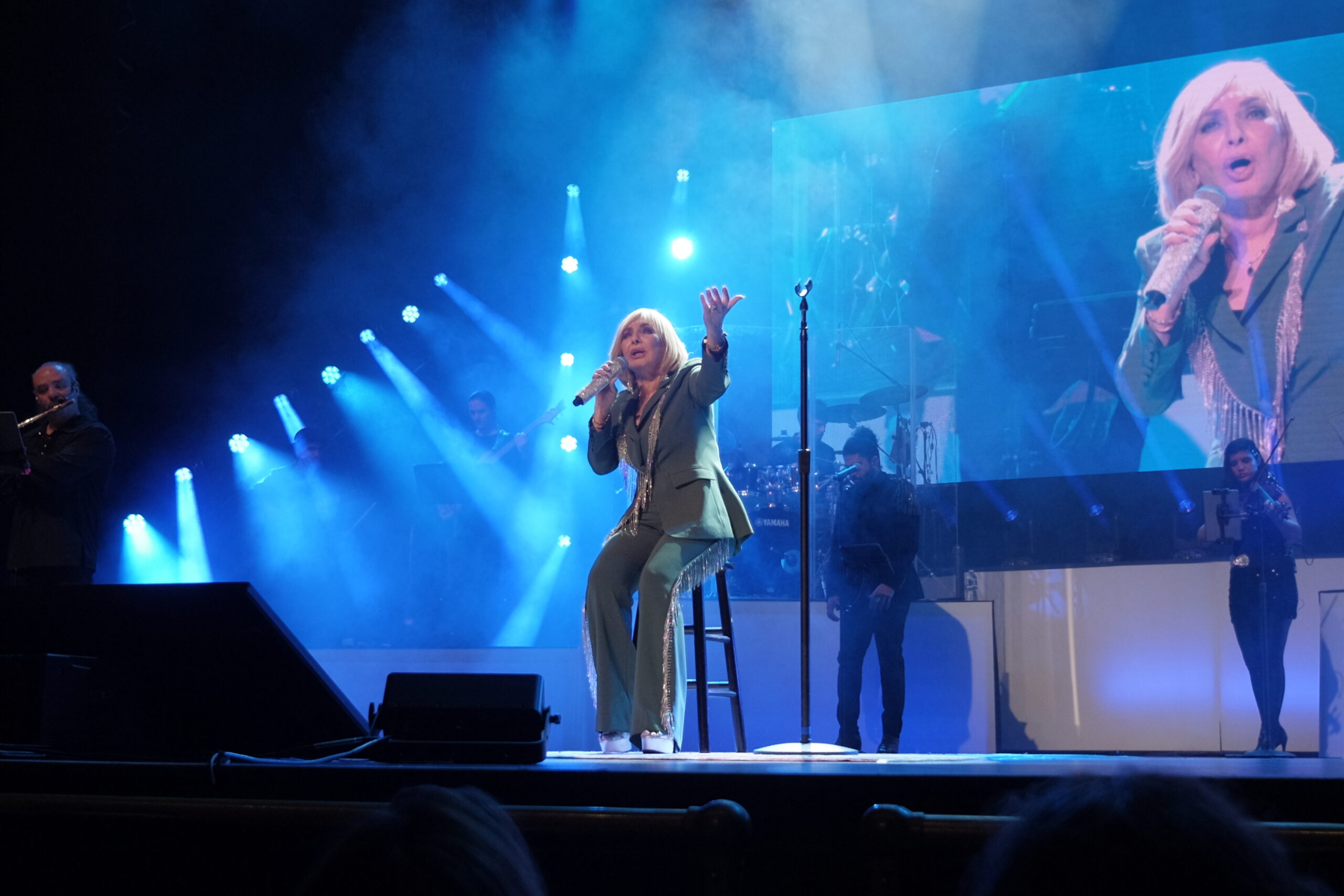This year, PAN M 360 brings you Igloofest from a new angle that of behind-the-scenes at the event, shining the spotlight on behind-the-scenes workers. After Stéphanie Cléroux, Production Director at Multicolore, we continue this pair of interviews with TiND, responsible for Igloofest’s VJing programming this year.
PAN M 360 invites you to dive into the creative world of Montreal-based VJ TiND, short for ” thisisnotdesign “.
Active for over twenty years, collective TiND has collaborated with the SAT and Moment Factory among others, the organization has known how to evolve with musical and visual trends, forging a solid reputation in the Montreal art scene. We spoke to Francis Théberge, one of the collective’s co-founders.
PAN M 360 : Introduce us to TiND in a few words.
TiND : We founded the collective in the early 2000s, there were 3 of us originally. We started out at raves, which is classic. Then big industrial parties, experimental music. Our specialty was really visuals that were very rough, sampled from pop culture. The classic VJ of the late 90s and early 2000s. Later, in 2005, we officially formed as a collective registered as a nonprofit organization. Then we all became moms and dads, which diminished the group’s activities. At the moment, I’m the main active member, with my wife in charge of archives and organization.
PAN M 360 : How did the collaboration with Igloofest come about?
TiND : If I’m not mistaken, we did the VJ booking in the third year, so that was over ten years ago. Then it was other great VJs, including Marion Carassou-Maillan aka VJ MA – she really worked hard to get us a great spot. Then there was Marc-Olivier Comeau aka VJ Binocle, a veteran of big stages and U.S. tours. Then there was Catherine Turp of Moment Factory, who has been booking for years. This year I’ve taken over the programming, with the aim of keeping the spirit of the Montreal VJ scene alive. We take care of the B stage, the smallest stage, and with the Montreal music program, it really feels like a local scene.
PAN M 360 : How have VJing practices evolved over time ?
TiND : Headliners are increasingly coming with their own visuals. We started to feel it several years ago, I’d say even before the pandemic in festivals like ÎleSoniq, Osheaga that I did a few years. I don’t think the place of VJs has quite been won. We’re obliged to play the content given by the artists without having much time to prepare. This is happening more and more with the big headliners. The artist choices were perhaps more balanced with a better representation of the underground. Obviously, the visual field has evolved a lot, technologies are more and more accessible. For example, someone who knows a lighting console very well will be able to operate visuals quite easily.
PAN M 360 : Do you have carte blanche for Igloofest ?
TiND : Yes ! Igloofest gives us a lot of freedom. The programmer supports the artists’ applications, and then the choice is made on the demos, whether it’s a series of images or ideally a demo clip. Of course, there’s production validation, but I’ve never seen an artist turned down unless the content was really inappropriate. There’s a diversity of visual styles represented, from the more experimental (like me) to stuff much more motion closer to the graphics you see in animated advertising. They’ve got a good eye, they know what they want, but it’s a really nice carte blanche. This year, we’ve made room for people who are just starting out, and we’ve taken them under our wing. I like the idea of including several generations of VJs.
PAN M 360 : In terms of content creation, how do you strike a budgetary balance between your visual universe, your signature, your style and the artist’s style?
TiND : There are VJs who are very good at adapting, creating or remixing visuals to make it work very well. On the other hand, there are VJs who have huge banks of visuals, who are also very malleable in general; they have a style that will stick with just about anything. It’s all a question of selecting the right clips, setting up the right set in the right software, whatever it takes. After that, it’s a question of feeling the music on site, and of craft. Sometimes you realize that the artist plays very differently from the sets on SoundCloud or MixCloud that you’ve been listening to in preparation. There are surprises. The primary role of the VJ is to have enough content to adapt to different styles and rhythms of music, and that’s important. Then you have to be able to improvise on the spot. In some cases, there are more specific mandates, where we’ll be asked to create visuals tailored to the artist, which requires collaboration between the labels and the artists, but unfortunately it’s very rare for us to be in direct contact with the labels or the artists.
PAN M 360 : What are the challenges for VJs at Igloofest ?
TIND : It may seem strange despite Igloofest being a big festival, we’re so well supported by the technical team on site, it’s incredible. Honestly, it’s very easy. As much as you can play a simple signal that takes up all the space and becomes really immersive, you can also cut out each tile, play different layers of visuals or a color more to the left, more to the right… It’s extremely flexible.
PAN M 360 : You emphasize the importance of the technical teams in enabling you to carry out your work. What is the dynamic like with the lighting designers with whom you collaborate very closely ?
TiND : I’ll be very transparent with you: in many cases, it’s a love-hate story! (laughs) Sometimes hate, it’s more because there’s miscommunication between the two artists. I’d like to stress that the lighting people, as much as anyone else on the technical team, even if you call them technicians, I call them artists. There’s no doubt about that. For example, the lighting technician on stage B this year is fabulous. He’s a young man of 19/20 who has already played for MUTEK. He’s very patient with us, calm, and communication is excellent. Despite me being chaotic and colorful, we manage to find a balance, and then at some point give each other more space. As soon as there’s good communication, it works really well, even if it’s improvised. Because these people are extremely good at improvising. In an ideal world, with more budget for preparation, there could be synchronization, which produces an incredible show for the audience.
TiND – Igloofest x SAT
TiND – MUTEK



